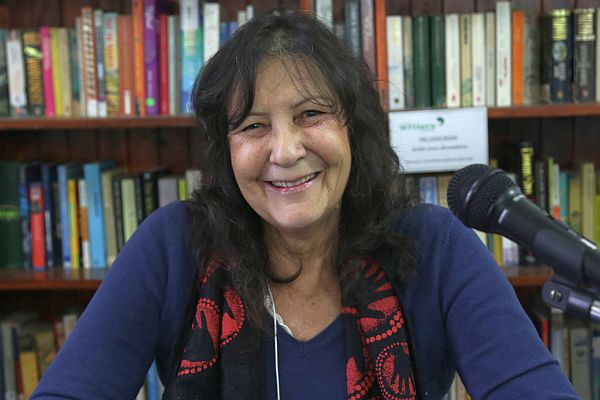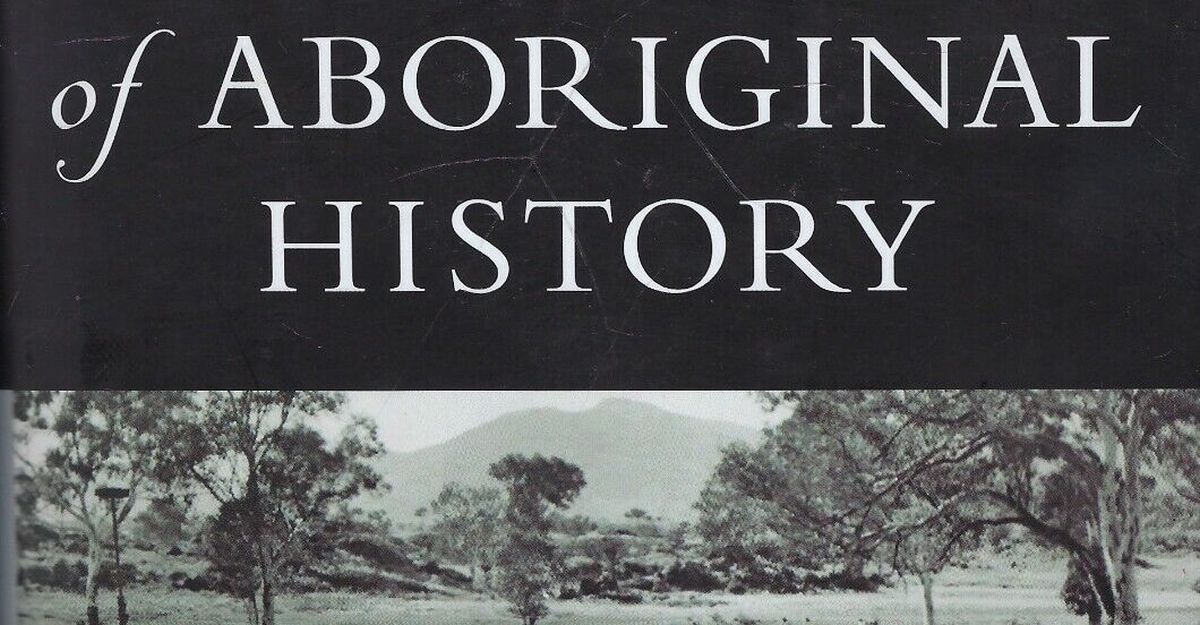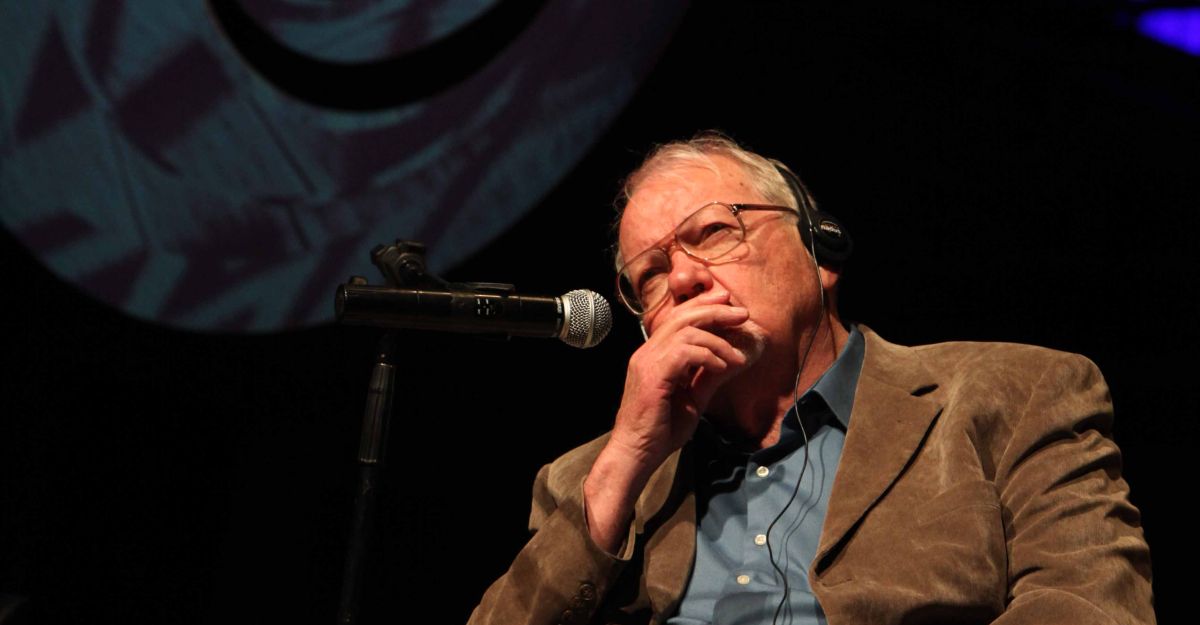It was a grey Canberra morning, mid-winter that she passed. A big mob of kuracca flew in over the suburb where we were neighbours for nearly two decades. Booming across the sky, they swept in low over the backyard where she used to scatter seeds. Always big mobs came.
Kuraccas – white sulphur crested cockatoos – were the symbol of Aunty Kerry Reed-Gilbert, who strengthened the voice of Aboriginal and Torres Strait Islander people through her writing, mentoring and activism. Aunty Kerry was a Wiradjuri elder, poet, writer, activist, educator, artist and deadly Black woman. She passed on the morning of 13 July after her battle with a long illness.
A word-warrior, she was the author and editor of numerous works of poetry and prose, including Black Woman Black Life (Wakefield Press, 1996); Talkin’ About Country (Kuracca, 1997; Message Stick: Contemporary Aboriginal writing (IAD Press, 1997); Ngunnunggula (Belonging to Here): Stories and poems (FreeXpression, 1997); and The Strength of Us as Women: Black women speak (Ginninderra Press, 2000), as well as edited collections, A Pocket Full Of Leadership (ACT KLAs 2016) and Too Deadly: Or Voice Our Way Our Business (2017). She is also the author of the forthcoming memoir The Cherry Picker’s Daughter (Wild Dingo Press).
I first met Aunty Kerry in the early 2000s when I was an emerging writer. We soon discovered that we were neighbours in the same suburb in Canberra. She lived in a house with a blue fence, just around the corner from where she fed the birds. Aunty was a mother, a grandmother, a great-grandmother, sister, cousin, Aunty and true friend to many across Australia. She was also daughter to Mummy – Aunty Joyce Hutchings, who raised her, along with several other siblings.
Aunty Kerry’s journey in this lifetime was one of growing up as the youngest of eight in a family that was blended, long before the term came into popular usage, on the Kalare River at Condobolin, south-west NSW. This was her beloved Wiradjuri Country. Kerry’s biological mother, Goma Scott-Gilbert, was murdered by her father, Kevin Gilbert, in 1957. Her family were a mixture of cousins who she said ‘came mostly in twos’. All eight were raised by Mummy – Wiradjuri activist and poet Kevin Gilbert’s older sister, and her husband, Ned Hutchings.
A teacher and advocate, Aunty Kerry was also the co-founder and inaugural chairperson of the First Nations Australian Writers Network (FNAWN). She was a trailblazing writer who strengthened the voice of Aboriginal and Torres Strait Islander people through her writing, mentoring, activism and, above all, her kindness and inexhaustible generosity.
Aunty began concentrating on her writing in 1991 and first performed her poetry in 1993 at the Black Women’s Voices in the Park series at Harold Park, Sydney. She had many highlights in her career including poetry tours to South Africa, Canada, the USA and Aotearoa, and a range of awards including, ‘Outstanding Achievement in Poetry’ and ‘Poet of Merit’ from the International Society of Poets. In 2003, she was awarded an International Residency from ATSIAB to attend Art Omi in New York.
In 2012, Aunty Kerry was elected chairperson for the First Nations Australia Writers Network, an organisation that supports the development, promotion and sustainability of Aboriginal and Torres Strait Islander writers and storytellers. She was also a founding member of Us Mob Writing, an ACT-based group of First Nations Australia artists.
Among her many achievements, I remember Aunty Kerry for her generosity of spirit, for her energy and encouragement, especially of new and emerging writers. And her passion for First Nations writing – as a tool of activism and voice for Indigenous Australians; as an art form; and as a way of telling and retelling our stories and histories as the Countries’ First People. I remember too, her infectious laugh, her humour, resilience and especially her courage, both in her life and in the story that she told
Over the last decade I had the great privilege of sharing my writing with Aunty Kerry and the equally great privilege of reading drafts of her later works. In the weeks leading up to her passing I had the honour of reading the final draft of her forthcoming memoir; and what will be her final work, The Cherry Picker’s Daughter. It left me humbled by her bravery and resilience; in awe of her courage, determination and strength to bring this timely story into the daylight.
In August 2018, in what was to be her last year as FNAWN chairperson, Aunty convened a large diverse gathering of First Nations writers from around the country, in Canberra. Established and emerging writers from all states and territories attended, as well as industry representatives from publishers such as Magabala Books, Wild Dingo Press and University of Western Australia Press. Along with workshops by acclaimed writers, across a variety of genres and sessions on publishing, the program featured a reading with First Nations Writers at the National Library of Australia, opening with a panel featuring Alexis Wright, Kim Scott and Melissa Lucashenko.
Like the kuracca, that is a sentinel bird – always watching over the rest of the mob, Aunty Kerry nurtured, encouraged and inspired a generation of writers. Her energy and commitment were unfailing right until the end. I spoke to her many times on the phone in the weeks leading up to her passing and she was, as always, working on FNAWN to ensure its ongoing future as a community of First Nations Writers. She was also delighted that the final edits for her memoir were complete. Right to the very end, she continued to send FNAWN members the warmest, most caring emails, making sure everything was in order. Yvette Holt, on behalf of FNAWN’s executive board, wrote: ‘Vale Aunty Kerry – may the wings of your Kuracca crest soar high. You are so loved and will be so sadly missed. Forever in our hearts.’
Aunty Kerry leaves a lasting legacy of literature and art that is a gift and treasure to the nation. She touched our hearts with her love, her humility, her talents and a life dedicated to helping others in so many ways. She carried much, and all with a smile, but she gave much more, with no fuss or fanfare, and often behind the scenes.
In the foreword to A Pocketful of Leadership, Aunty Kerry wrote: ‘First Nations Australia leadership has “always been” and will continue to “always be” living on country’. And it is this dynamic relationship with Country and Culture, against the context of colonialism’s devastation, that was the theme of so much of her work.
Her words in Too Deadly Our Voice Our Way Our Business encapsulate her extraordinary life:
My elders, I hear them speak loud and strong
with messages of culture and belonging.
The essence of me. Who I am and who I’ll always be.
Proud. Strong. Aboriginal. Me.
On the morning that she passed, a mob of kuracca flew in, dipping low in a thick cloud over her old home, calling her passing across the sky, taking her spirit home. Vale Kuracca, Aunty Kerry Reed Gilbert, as you fly high and safe on the journey back to your Dreaming. Under your wings is the strength of us as Black writers.






